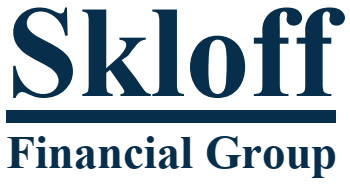Impacts of Increased Healthcare Costs – Independent Press

The Independent Press
Money Matters – Skloff Financial Group Question of the Month – May 2, 2012
Impacts of Increased Healthcare Costs
By Aaron Skloff, AIF, CFA, MBA
Question: My company recently began offering a Health Savings Account (HSA) available to all the employees. What are the pros and cons of a HSA?
The Problem – Healthcare Costs. If you think rising healthcare costs are only the insurance company’s problem or your employer’s problem, think again. Most employees pay 10%-90% of their healthcare costs, when all costs are included. All it takes is a quick review of your pay stub over the last few years to see that the insurance companies are passing on increasing healthcare costs to employers and employers are passing on these costs to employees.
According to the Kaiser Family Foundation, the average annual premium for family health insurance through an employer reached $15,073 in 2011, an increase of 9% over the previous year. From 2001 to 2011 family health insurance premiums increased over 100%, while wages increased 34% in the same period. While employer contributions grew 113% to $10,944, employee contributions grew by 131% to $4,129.
Click Here for Your Long Term Care Insurance Quotes

The Solution – Health Savings Account. Just a quick background on Health Savings Account (HSA) and how it works. The HSA is a hybrid between a health insurance plan and a retirement plan. The HSA was established so savings used for qualified medical expenses for yourself, or anyone you claim as a spouse or dependent would be free from taxes. Qualified medical expenses include: medical doctors, dental and optical care, chiropractic care, long term care, and Medicare Part A or Part B and Medicare HMO insurance premiums. Unqualified medical expenses include: cosmetic surgery, health club dues, nonprescription drugs and medicines and funeral expenses.
A contribution to a HSA is only permitted if the health insurance accompanying it has a deductible (your out of pocket expense) of at least $1,200 for individual coverage or $2,400 for family coverage. The current contribution limit per year is $3,100 for individual coverage or $6,250 for family coverage. Those 55 and older can contribute an additional $1,000. Contributions are all pre-tax, a tremendous benefit for those seeking tax breaks. If the savings are used for qualified medical expenses, the entire amount can be withdrawn free of taxes. Yes – that is right, free of taxes. If the savings are used for other purposes, the withdrawal is taxed as income and accessed a 20% penalty (if under the age of 65). At age 65, when Medicare begins, withdrawals are only taxed as income at your then tax rate. All interest, gains and dividends in a HSA are sheltered from taxation – allowing all earnings to compound on a tax-advantaged basis. Unused balances can be rolled over from year to year. The HSA can also be used as a retirement plan, in addition to a 401(k) and Individual Retirement Account (IRA).
A Win for Employees, Employers and Insurers. Because the HSA is based on a high deductible insurance plan the employee takes on a higher level of responsibility and risk for medical expenses than a traditional insurance policy, while the insurance company takes on a lower level of responsibility. Employees who run their family to the doctor office every time someone has the sniffles (because the visit only costs them $20, while the insurance company pays the remaining $75 under a traditional plan) will think twice when they pay the full $95 out of their own pocket under a HSA. That said, those out of pocket costs are all with pre-tax dollars that were contributed to the HSA. By utilizing a HSA employers can reduce their premium costs by as much as 50%, passing most or all of those savings directly to the employees.
Action Step – Implement a Health Savings Account. Implement a HSA for your company or ask your employer to implement one. A HSA provides a pre-tax means to contribute towards an account that will grow over time, with the option to use the money for medical expenses on a tax-free basis or for any purpose in retirement on a penalty free basis. When it comes to important employee benefit decisions, speak with a licensed financial professional before making costly mistakes.
Aaron Skloff, Accredited Investment Fiduciary (AIF), Chartered Financial Analyst (CFA), Master of Business Administration (MBA) is CEO of Skloff Financial Group, a Registered Investment Advisory firm based in Berkeley Heights. He can be contacted at www.skloff.com or 908-464-3060.











